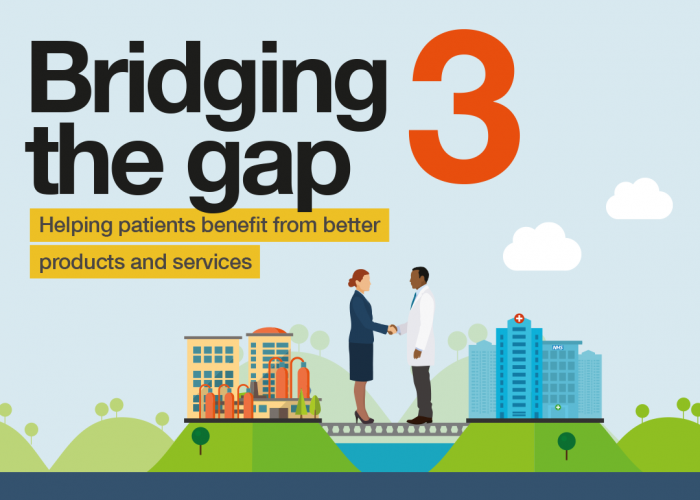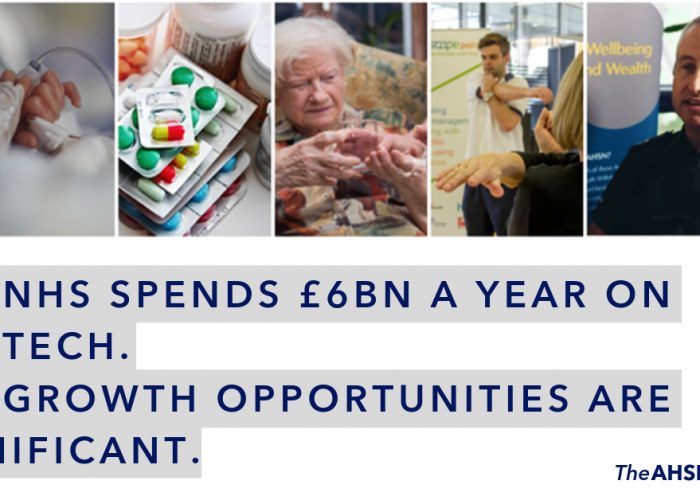 Some of England’s most pioneering NHS organisations recognised for their work in adopting new technologies and models of care to improve outcomes for patients, are celebrated in a national report launched today.
Some of England’s most pioneering NHS organisations recognised for their work in adopting new technologies and models of care to improve outcomes for patients, are celebrated in a national report launched today.
Understanding how and why the NHS adopts innovation captures real-world insight and learning from NHS sites which have successfully implemented innovations ranging from digital to patient safety devices and models of care. The report, published by the NHS Innovation Accelerator (NIA) in partnership with The Bayswater Institute, aims to inform understanding of adoption and the enabling factors which support the uptake and embedding of innovation in the NHS.
The adoption of new technologies and innovation in the NHS is a challenge. In developing understanding as to how and why NHS organisations take up an innovation, the NIA can support the NHS to realise the potential benefits of innovation more quickly. These benefits include: improved clinical outcomes, patient empowerment, reduced health inequalities, and savings to England’s health and care system.
The NHS organisations highlighted in the report have all adopted high impact, evidence-based innovations supported by the NIA – an NHS England Accelerator delivered in partnership with the country’s 15 Academic Health Science Networks (AHSNs) and hosted at UCLPartners. They include:
- Surrey and Borders Partnership NHS Foundation Trust and Surrey Police: Implementation of the Serenity Integrated Mentoring (SIM) model of care across the county has resulted in significant reduction in Section 136s.
- Sutton GP Federation: Adoption of Lantum’s cloud-based tool, built to help NHS providers fill empty slots in their clinical rotas, supported the Federation to see 14,500 additional patients in the first 12 months.
- Guy’s and St Thomas’ NHS Foundation Trust: Implementation of DrDoctor – an online and text-based service that allows patients to confirm, cancel, and change bookings digitally – has realised a £2.6M financial benefit from the first year of rollout.A special event at the London Stock Exchange celebrated the NHS adopter sites recognised in the report. NHS staff from representative organisations were in attendance alongside NHS England and AHSN executives, to watch as Secretary of State for Health and Social Care, Matt Hancock MP, opened the markets and launched the report.Health Secretary Matt Hancock said: “There are pioneers across the NHS working incredibly hard to implement new technologies to support staff, make every pound go further and improve outcomes for patients – and they should be applauded for their resilience, commitment and tenacity.
“As part of our long-term plan for the NHS, we want to build an ecosystem of enterprise and innovation to allow new projects to flourish and my tech vision is the first step to making this ambition a reality.”
Professor Stephen Powis, National Medical Director of NHS England and Chair of the NHS Innovation Accelerator, said: “Right across the NHS patients are now benefitting from world beating innovations, as this programme has helped spread 37 new tools to improve patient care and experience to almost 1,500 more hospitals and GP practices.
“The real-world experience of those adopting new tools is vital so we can understand the challenges of spreading innovations and learns from those experiences so even more patients can benefit.”
NHS Innovation Accelerator: Understanding how and why the NHS adopts innovation is now available to read and download here.
For more information about the NHS Innovation Accelerator visit www.nhsaccelerator.com
ENDS



